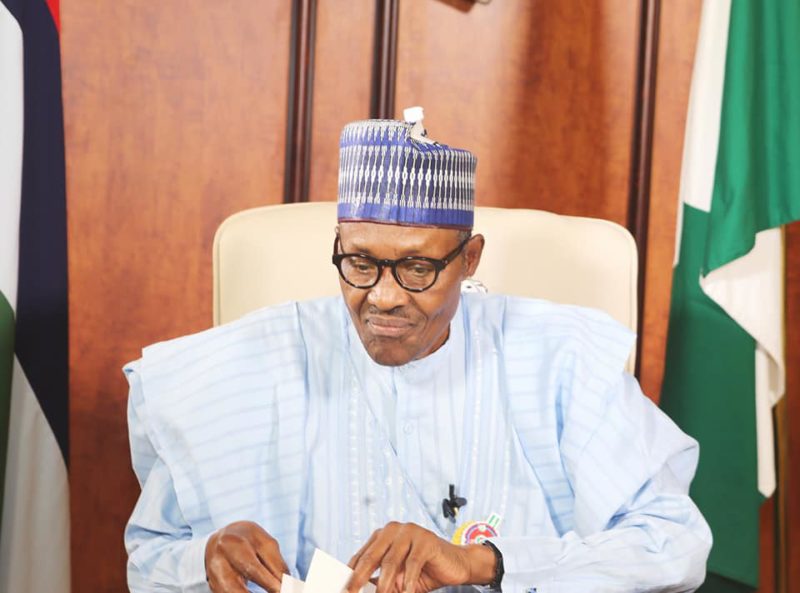Organised mining began in Nigeria in 1902, when the Mineral Survey of the Northern Protectorate was created by the British colonial government.

A year later, the Mineral Survey of the Southern Protectorates was founded and by 1940s, Nigeria was a major producer of tin, columbite and coal.
The discovery of oil in 1956 affected the mineral extraction industries, as the government and industry both began to focus on this new resource.
The Nigerian Civil War in the late 1960s made many mining expatriates to leave the country and that affected the mining industry.
In a bid to unlock the economic potential of the solid minerals, the Federal Government in 1985 created the Ministry of Solid Minerals Development to spur the rapid and beneficial development of the country’s solid mineral resources.
About 44 mineral occurrences have been reported in Nigeria; a number of these minerals are estimated to exist in commercial quantities, including Nickel, Bitumen, Iron Ore, Gold and Coal.
When President Muhammadu Buhari assumed office in 2015, he emphasised on diversifying the economy from oil to solid minerals and measures were being taken by the Federal Government to realise this programme of moving the economy from oil to solid minerals.
In spite of the COVID-19 pandemic disruption and destabilisation of Nigerian economy which enforces urgency of economic diversification, the task fell on the lap of those managing the solid mineral sector.
More specifically, the focus is on the Mining Cadastre Office (MCO), which regulates mining licencing under the Ministry of Mines and Steel Development.
The expectation of the public is high while the Federal Government itself is in search of a magic wand to accelerate the diversification process and ensure sustainable mining licensing and management.
To achieve the diversification agenda of Mr President, MCO has launched world class reforms, some even anticipating the ease of the pandemic.
In the past one year, several policy actions have been initiated, both ministry wide and specifically at the agency level.
From the revenue perspective, verifiable improvement was recorded last year; the agency earned N2.59 billion, first in the history of the agency.
The secret of the sudden increase was the introduction of ‘First Come, First Serve’ and ‘Use it or Lose it ’, in the licensing administration.
Use it or lose it helps to eliminate speculators in the industry and also helped to revoke licences not used and dormants.
Use it or lose it has activated many dormant licences and increased revenue inflow into the treasury. Between 2006 and 2020, MCO revoked 4,997 licences due to different offences.
On this basis MCO was able to make the system attractive enough for investors so as to generate more revenue.
The agency also initiated migration online of licencing processes long before COVID-19 pandemic; elimination of human to human interaction is the best practice in enthroning transparency, accountability and anti-corruption in licencing and other governmental transactions.
This is a smart response to the evil of corruption, low investment and dwindling revenue earnings. The Electronic Mining Cadastre system (eMC+) is a state of the art in the administration and management of Mineral Title for prompt, efficient and transparent management of Mineral Titles throughout their life cycle.
The migration of MCO operations to an online-based Mineral Title Administration system also encompassed the digitalisation, automation, recording and archiving process (e-Recording/Archiving) as well as the establishment of six zonal offices in Nigeria.
MCO is working closely with National Iron Ore Mining Company (NIOMCO) and NSRMEA on Ajaokuta iron ore to be used for steel and other strategic minerals.
The office is protecting coking coal, Bauxite, Dolomite from exploitation and preserving the minerals until when Ajaokuta steel company kick starts its operation.
The office has been able to protect the Federal Government Gold project initiative programme too.
MCO also places restrictions on strategic minerals such as gold and coal (for power generation) unless the applicant provides evidence of competence to develop these strategic minerals.
The mining policies and programmes put in place since the coming of the President Muhammadu Buhari’s administration has sign posted a significance interest, revenue generation as well as attract initiatives for genuine investors to the mining sector as a way towards diversifying the economy.
By Francisca Oluyole
